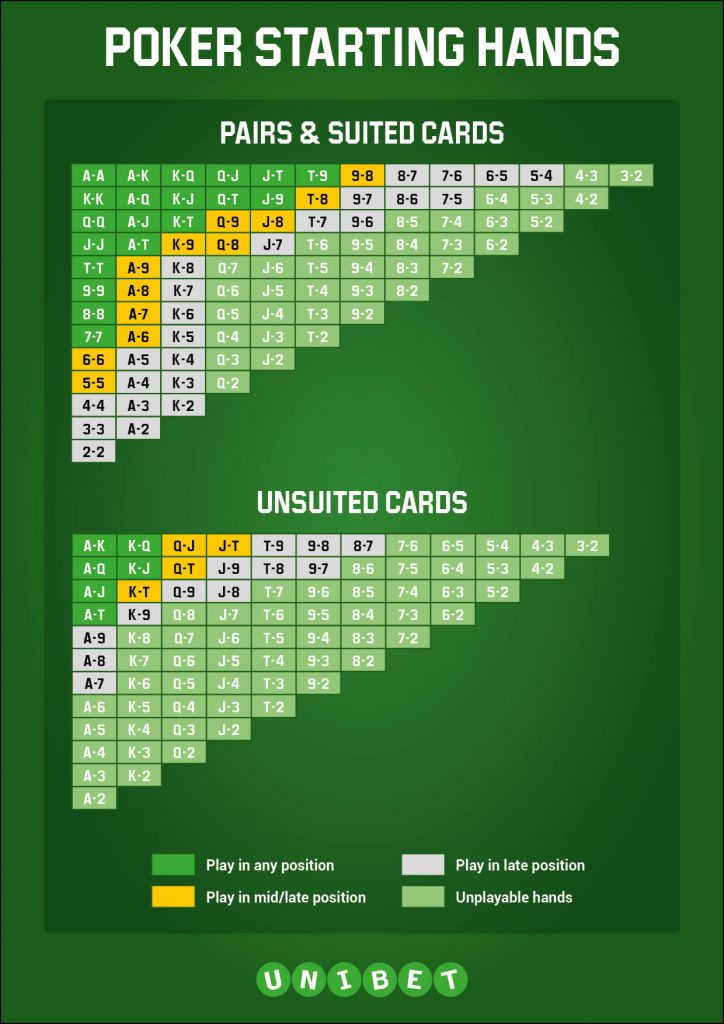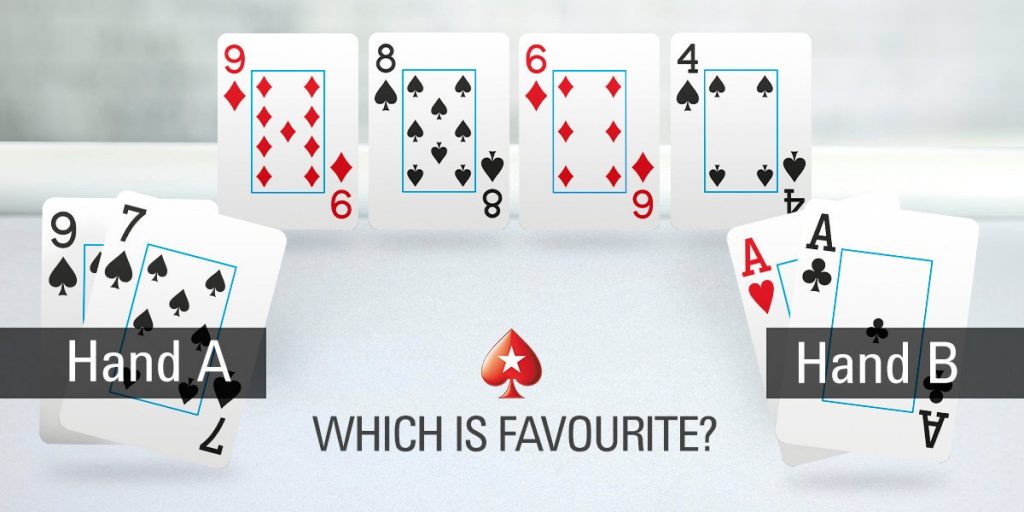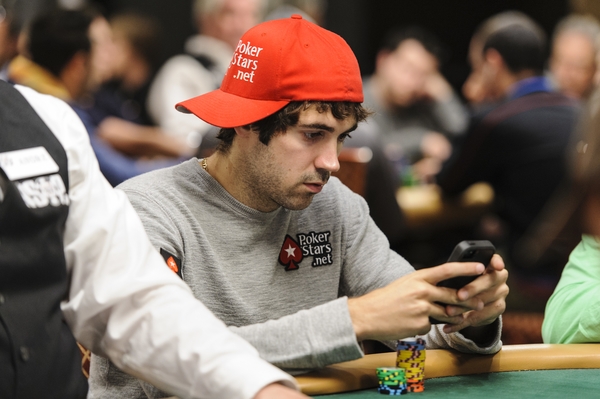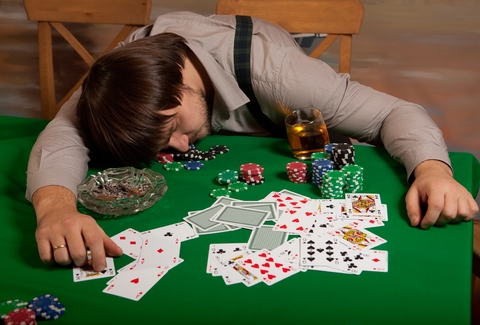Do you find yourself merely breaking even at the poker table without the consistent profits you aim for? Rest assured, you’re in good company; many poker players find themselves in a similar position.
But often, the leap from average to exceptional is just a matter of fine-tuning your strategy. In this guide, I’ll share seven nuanced yet powerful strategies that can elevate your poker prowess and enhance your win rate.
Expanding Horizons: Think in Ranges, Not Hands
No matter the poker variation, discerning a novice from an experienced player can often be done by observing their thought process regarding opponents’ potential hands.
While a beginner might guess their opponent holds a specific hand, such as a straight or flush, an advanced player thinks in terms of ranges—a comprehensive set of potential hands in a given scenario. This range-based thinking is crucial for accurate pot odds calculation. For example, in a certain game situation, a player might have anything from a strong flush to a simple high card bluff.
Adept poker players, those well-versed in strategy, understand that any given opponent will play a wide range of hands with different frequencies. Rather than zeroing in on a single hand as the winning one, they analyze the spectrum of possible hands and how often each is likely to occur. This analysis guides them to make the most strategic play in any given situation.
Average players often attempt to attribute a precise hand like A♥J♥ to their opponent, following their intuition rather than strategic reasoning.
One fundamental lesson for newcomers to grasp is that successful poker doesn’t marry well with instinctual play. Relying on gut feelings rather than solid, strategic considerations is a misstep in any form of poker, be it tournaments or cash games.

Letting Go: The Pitfall of Favoritism in Poker Hands
Many players harbor affection for a particular hand, like the 9♠7♠, which often sparks a thrill of excitement when it appears. Despite this emotional bias, a strategic player must acknowledge the hand’s limitations. It has its place, perhaps in the late position during an unopened pot, yet prudence dictates a fold in early position, recognizing its true, unremarkable potential in the grander scheme of the game.

If you currently have a favorite hand, that’s fine — most people do. But don’t give it preferential treatment and make bad plays with it. Winning poker is about math and cold hard logic, not superstition.
Consistency is Key: The Power of a Uniform Strategy
To excel in poker, steadfast application of a proven strategy is crucial. Capricious alterations, such as impulsively playing 9♠7♠ in early position due to boredom or frustration, undermine your discipline. The true test of your extensive learning and experience is its consistent execution at the poker table, where every hand and session forms the cornerstone of your poker journey.

Elite poker players apply the same winning strategy over and over again, no matter how they feel or what their recent results have been.
Strategic Flexibility: Having a Reason to Deviate
Top-tier poker pros occasionally diverge from their go-to strategies for strategic reasons.
While a casual player may recklessly raise with 9♠7♠ out of early position out of ennui or impulse, a savvy player does so after noticing passive play and less experienced players in the blinds, identifying an opportunity. Such calculated adjustments are justified when backed by sound strategic reasoning, not whimsy.
Mastering the Fold: The Courage to Lay Down Aces
A standout trait that separates proficient poker players from the rest is their willingness to lay down an overpair.
That nagging unease when you’re holding AA and an aggressive opponent goes all-in on the turn? Resisting the urge to make that desperate “crying call” only to see them reveal a set is crucial.
Heed that intuition more closely. Recognizable trends, particularly in online poker at lower stakes, often dictate that folding an overpair is the strategically sound decision.

Good players are able to let go of any emotional attachment to their pretty-looking hands. Average players get married to their aces or kings instead, and can’t let them go even when they know they are beat.
Tilt: The Silent Saboteur
Tilt can ravage bankrolls, aspirations, and poker careers. Countless messages recount tales of players who’ve squandered their stakes in moments of frustration.
Poker’s inherent unpredictability means things can and do go awry, an accepted risk with every hand dealt. The danger lies not in the bad runs but in succumbing to emotional responses, discarding hard-earned strategies.
It’s essential to honor the diligence you’ve invested in honing your craft by staying composed, thereby safeguarding your bankroll and honoring the strategic discipline you’ve cultivated.
Selective Play: The Wisdom of Game Selection
Average players often undermine their potential winnings by competing against solid regulars. If no one is evidently misplaying, question the profitability of participating in that game.
For those who enjoy poker’s intellectual rigor or play for fun, this advice may not resonate. However, if victory and profit are your goals, remember: significant gains come not from outplaying competent players by slim margins, but from capitalizing on the substantial mistakes of others over time.

As the classic movie Rounders reminds us, “If you can’t spot the sucker in your first half-hour at the table, then you are the sucker.”
Adaptation: Reading the Room
Adaptation in poker goes beyond strategy on the felt; it’s about ‘Reading the Room’. Successful players are not just masters of the cards but also of the environment. They gauge the game’s tempo, the players’ styles, and the overall mood. They know when the game calls for aggression or when a more conservative play is prudent. They can shift gears seamlessly, capitalizing on the table’s dynamics. This skill allows them to exploit situations that others might miss, turning a mediocre session into a profitable one. It’s the poker equivalent of social intuition — a nuanced sense that, when honed, can significantly impact one’s success at the tables.

Final Thoughts
The gap separating consistent winners from those barely making profits in poker is narrower than it seems. Often, it’s a matter of integrating a few, straightforward strategic adjustments over time that propels your performance, enhancing your win rate.
The key lies in adopting a detached, analytical approach to the game, grounded in mathematics and logic rather than emotion or superstition.
While average players get caught up in the heat of the moment, top-tier players focus on the big picture. They don’t dwell on short-term outcomes; instead, they persistently apply the most profitable moves, hand after hand, undeterred by the vicissitudes of the game.

